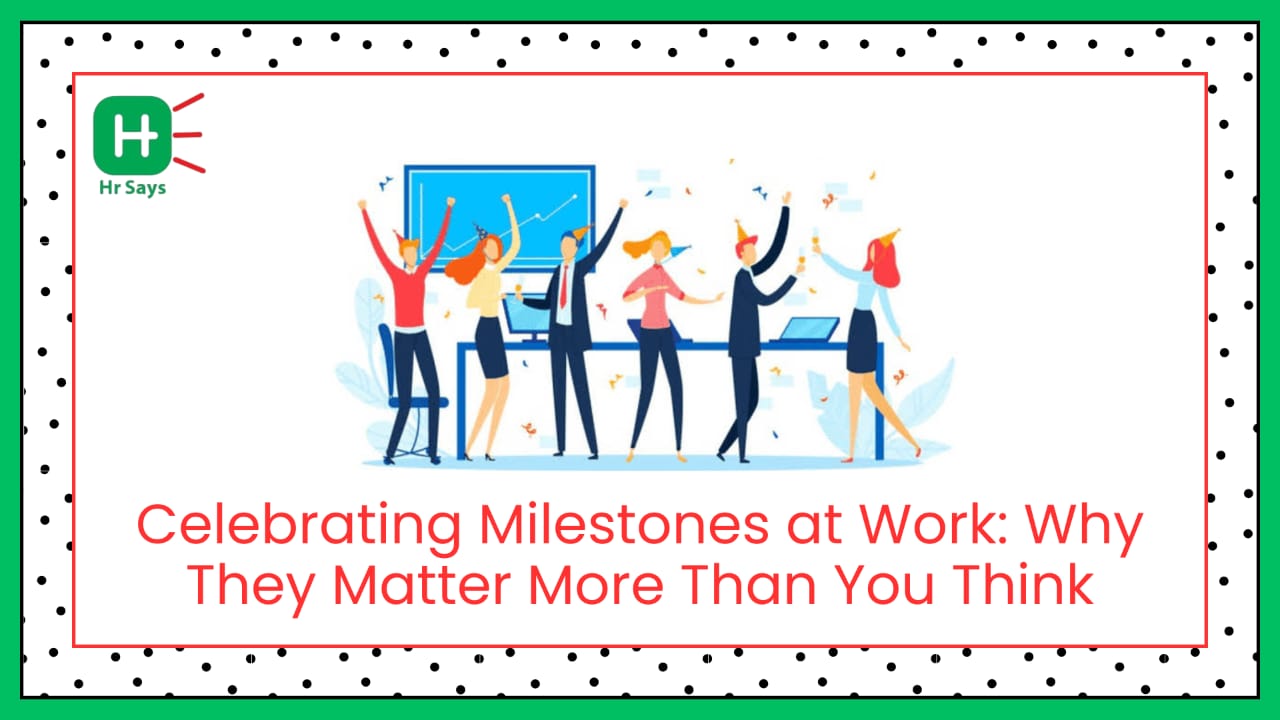So why do people remain loyal to a work place, past remuneration and benefits? The awareness of their transportation to a place, the instances they collectively celebrate and the common things they cross. Work place milestones are not only about cake and confetti as it relates to solidify culture but also as a way of reminding teams that even though progress is to be made, hitting the pause button is an allowable option.
Why Milestones Deserve Attention
Goals be it a personal or an organizational goal bear emotional weight. The dates on a calendar are not a project name with uncommon completion, a work anniversary or an achievement of a shared goal. They are reflections of hard work, perseverance as well as team work. When people work in a busy office, these small celebrations usually become a point of origin.
The Impact on Workplace Culture
A workplace without recognition can feel transactional. But when milestones are marked, people feel seen and valued. Celebrations, no matter how small, contribute to building workplace culture in Indian companies where relationships hold great importance. They foster pride, deepen connections, and encourage employees to view the workplace as more than just a job.
Building Trust Through Recognition
Trust is not built overnight. It grows when leaders notice contributions and celebrate them. When HR managers focus on milestones, they quietly reinforce leadership skills for HR managers that go beyond authority—skills rooted in empathy and acknowledgment.
Diversity in Celebrations
Not all milestones need to be grand. Small wins like a team finishing training or achieving a monthly goal also deserve a moment. Diversity and inclusion in Indian workplaces is about ensuring every employee feels part of these moments, regardless of rank or background.
How Milestones Drive Engagement
Employee engagement strategies for Indian companies often revolve around rewards and recognition. Milestone celebrations offer a natural, cost-effective way to boost morale. Employees who feel celebrated are more likely to stay invested in their roles.
● Celebrations create anticipation and excitement.
● They act as motivators during challenging phases.
● They highlight the company’s values in action.
● They increase retention by strengthening loyalty.
Role of HR in Celebrating Milestones
HR plays a critical role in shaping these practices. It is not about organizing events alone but about embedding recognition into the organizational rhythm. With HR digital transformation trends 2025, even technology is enabling new ways of celebrating—from automated anniversary messages to virtual recognition platforms.
Milestones as Career Markers
For employees, career growth for HR professionals or for anyone in the organization is often marked by milestones. Recognizing promotions, certifications, or successful transitions helps individuals connect their personal growth to the company’s progress.
Balancing Formal and Informal Celebrations
Not every milestone needs a formal event. Informal moments—a quick team lunch or a shared message—can sometimes leave a deeper impact. The key lies in consistency, not extravagance.
Looking Ahead: The Future of Recognition
As hybrid work trends in India continue, milestone celebrations will evolve. Virtual shoutouts, digital badges, and AI-driven reminders may become common. But the essence will remain unchanged: recognition is about people, not platforms. The future of HR in India will increasingly tie employee experience with thoughtful recognition strategies.
Conclusion
Milestone celebrations in the workplace are not luxuries; they are investments in culture, trust, and engagement. When moments of progress are celebrated, employees feel part of a bigger
story. For HR leaders, it is a reminder that recognition is not seasonal but continuous, shaping the organization one milestone at a time.

 Celebrating workplace milestones strengthens culture, builds trust, and improves employee engagement. From small wins to career markers, recognition plays a central role in creating belonging and loyalty, shaping the future of HR practices in India.
Celebrating workplace milestones strengthens culture, builds trust, and improves employee engagement. From small wins to career markers, recognition plays a central role in creating belonging and loyalty, shaping the future of HR practices in India.








.jpeg)
.jpeg)

.jpeg)





.jpeg)



.jpeg)

.jpeg)



